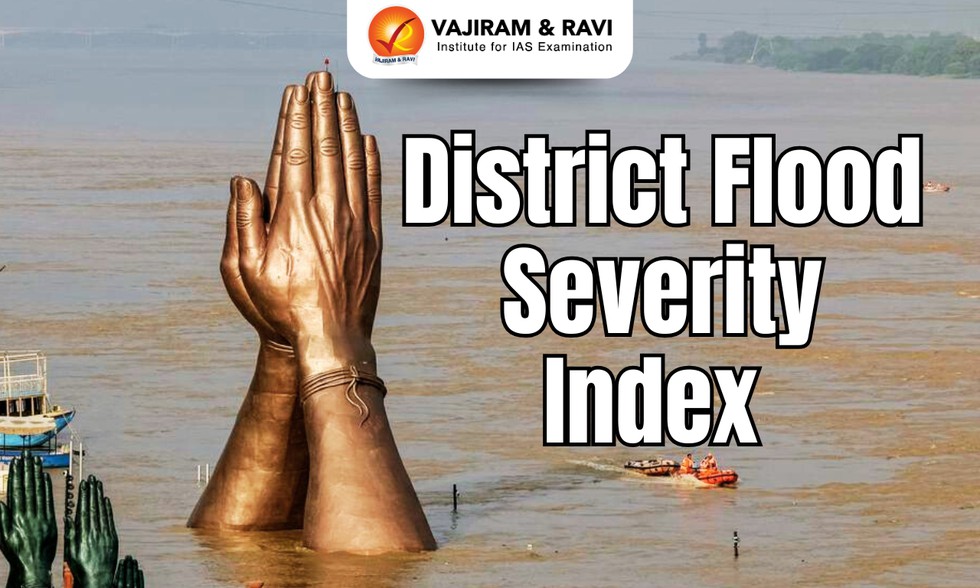About District Flood Severity Index:
- It accounts for the historical severity of floods in India based on the number of people they have affected and the spread and duration of such floods.
- Parameters used
- It takes into account the mean duration in days of all flooding events in a district.
- Percentage of area that is historically flooded
- Total number of deaths, number of people injured
- Population in the district
- It is developed using the India Flood Inventory with Impacts (IFI-Impacts) database containing data of variables representing the occurrence of floods and damage due to floods.
- India Flood Inventory with Impacts contains death and damage statistics, and combines population and historically flooded area information sourced from a national hydrologic-hydrodynamic modeling system.
- Since the district is the most relevant unit for planning and decision making, a DFSI would be of immense value for flood management.
Key findings of District Flood Severity Index
- Patna turns out to be number one on the index followed by many districts in the Indo-Gangetic Plain and in Assam.
- Thiruvananthapuram is number one in terms of flooding events, it is absent in the top 30 districts in the flood severity index.
- Dhemaji, Kamrup, and Nagaon districts in Assam are three of the five districts in India that have experienced over 178 flooding events, or more than three events per year on an average.
- Urban flooding occurs partly because of hydrometeorological reasons and also due to unwise urban development.
